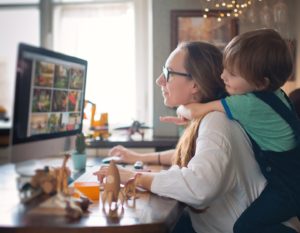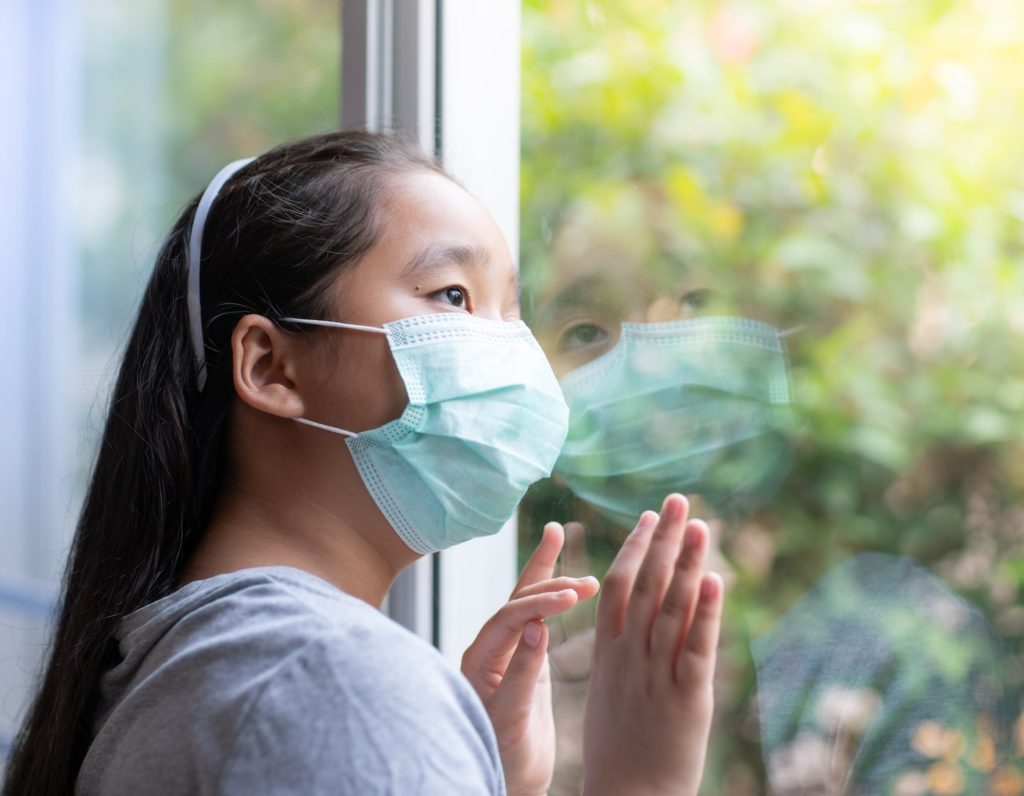
Life is stressful for kids and teens as it is, without the added pressure of world events, school closures and social distancing. Here’s what to look out for and how you can help when it comes to mental health.
Safe to say that stress and anxiety for all family members are at an all-time high. While we’re relieved about hearing the news of easing travel restrictions and schools finally resuming face-to-face classes, we’re not there yet and so it’s best to be prepared for the bumpy road ahead. We turned to the experts from Mind HK to point us in the right direction on what to look out for when it comes to mental health and our kids as well as when you should seek out the support of counsellors and specialist therapists.
Odile Thiang, lead clinical advisor for the Anti-Stigma Project and trainer at Mind HK, kindly answered a few of our questions. She is a Paediatric Nurse Practitioner with over 10 years of experience in child and adolescent care. Her commitment to serving marginalised communities lead her to work on the improvement of mental health care, and working with survivors of sexual assault and domestic violence as well as vulnerable LGBTQ+ youth. In Hong Kong, she has focused her efforts on mental health and nursing education.
Read more: Expert Advice: 3 Ways To Help Your Child With Everyday Anxiety
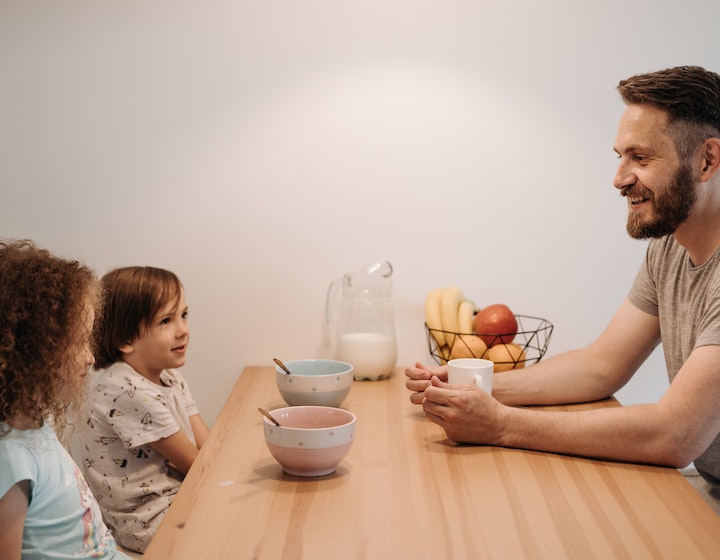
What’s the best way to start a mental health conversation with our kids and teenagers?
Most of the work around speaking to children about mental health actually comes much before you notice any issues. It is in how you talk to them about managing their emotions day to day and in attuning to them on a daily basis. In letting children express their emotions (good or bad) in a healthy and safe way you are building a foundation for mental wellbeing.
For children at every age, invite them to express how they are feeling (good or bad). Allowing them to explore what they are experiencing and the emotions that come with that. Listening and validating their feelings, rather than dismissing or minimising them.
With younger children you can use play or story time to help them talk about how they are feeling, using characters from their play or stories to explore emotions. While older children appreciate it when parents are forthcoming, open and non-judgemental.
“The most important elements are to listen to them and let them be heard, and to not jump into fix-it mode. What they need from you is a secure space to explore their feelings and emotions.”
Some good conversation starters opening lines at any age:
- “How does that make you feel?”
- “Can you tell me more about that?”
Read more: 3 Expert Tips To Help Regulate Your Child’s Emotions
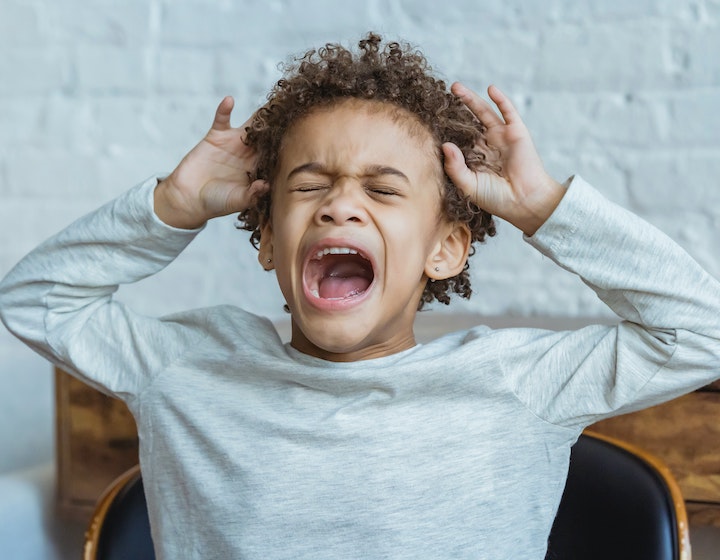
Are there any mental health warning signs we should be on the lookout for?
The most important thing to look out for is change in behaviour, and this is for every age. Kids and teens of all ages (and adults for that matter) may experience physical complaints like headaches or stomach discomfort. Be sure to have these symptoms assessed by a medical professional to ensure there isn’t a physical health problem.
Mental Health Signals In Children:
- More clingy, or anxious to separate from you
- More explosive in their reactions, having more meltdowns
- More withdrawn, not wanting to socialise
- Engaging in angry or sad play, children will often express themselves in play, so pay attention to what they are saying when playing
Mental Health Warning Signs In Teenagers:
- More irritable or angry
- Increased mood swings (beyond what you normally would expect)
- Increasingly withdrawn and isolated, not engaging with family or friends
- Substance use
- Increased tech use (social media or gaming)
Read more: Counselling, Psychologists And Therapists For Couples And Families In Hong Kong
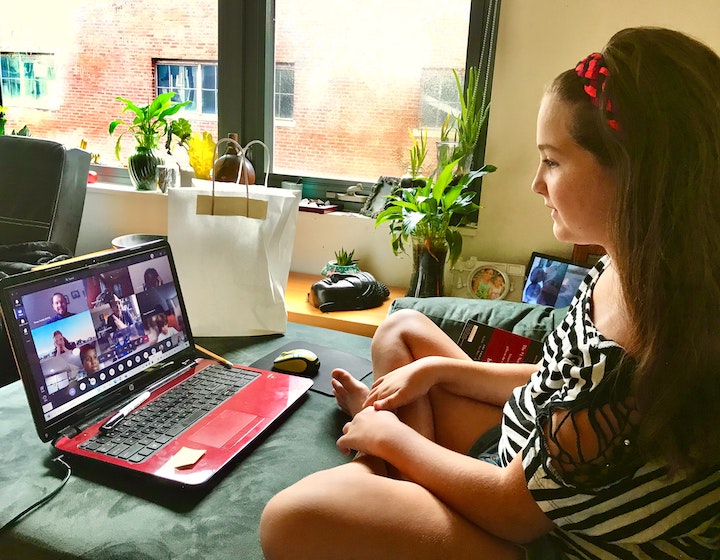
With schools shut (again!) how do we ensure our kids are getting the socialisation they need?
This is one of the most difficult issues during these times. In-person socialisation is crucial for development at every age. Facilitating online meetups with friends and family is important for them to feel connected to loved ones.
Preschool and early school-aged children learn through social interaction and play, and this learning does not translate well virtually. For this age group, it’s of course ideal if siblings, cousins or one other household with a friend their age can help provide in-person social interaction. If this is done, it is suggested to use RAT testing to facilitate safe social meetings and to ensure you are following government guidelines. Virtual connections are ok but not as effective in this group and would be more helpful with a caregiver facilitating.
School-aged children and adolescents allow the use of social media and gaming platforms (within reason) to connect to peer groups. They also benefit from online and safe in-person meetups (in line with government guidelines) with their friends — any form of social connection or sense of community can help support them through this time.
Read more: Expert Advice: How Will Social Distancing Affect My Child
It’s been mentally tough for parents as well. Should we “be strong for the kids” or is it ok for them to see us struggling too?
While it is important to “keep it together” for the children it is also important to show them that it is ok being vulnerable and it is ok to struggle.
“Let them know that this is a difficult time for you as well, and share with them (in a developmentally appropriate way) how you are feeling. This will model to them healthy ways to express themselves.”
But also let them know and show them what you are doing to take care of yourself (exercise, connecting with loved ones, practising mindfulness). You can also do some of these practices together, like going for a walk or hike or practising yoga together.
But make sure you are also engaging in self-care that doesn’t include your children. Recharging your battery is just as important, as your wellbeing will set the tone for your children and impact how they perceive and react to the current situation.
Read more: Coping With COVID Fatigue: 10 Practical Tips To Take Into 2022
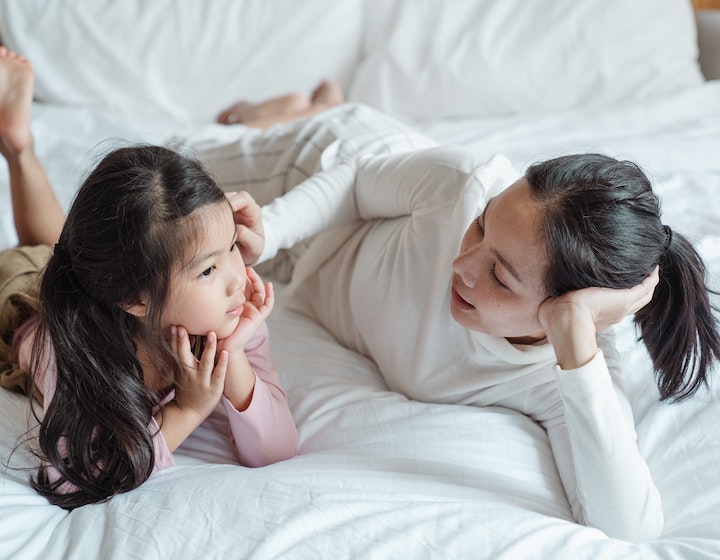
Can you share any tips, or “Dos & Don’ts” when it comes to supporting our kids’ mental health?
Do validate:
- “That must be very difficult for you”
- “I can see that this has been very upsetting for you”
- “It is ok to feel [sad, mad, angry, frustrated] right now”
Don’t use phrases like:
- “You are fine”
- “You don’t have to worry about that”
- “That’s silly”
These all dismiss or minimise their experience.
You also don’t want to give the impression that expressing emotions is wrong by using phrases like:
- “Big girls/boys don’t cry”
- “Don’t be a baby”
- “You are being a drama queen”
Read more: Home Learning Resources: Online Classes Tutors And Courses In Hong Kong
Where Can Parents Turn To Get Mental Health Support For Their Kids?
If you are noticing signs that concern you, and are worried your child is struggling, first talk to them about how they are feeling and get a better understanding of where they are at and what is concerning them. Answer any questions they may have, in an age-appropriate way (it’s also ok to say you don’t know/don’t have the answer to something).
- Listen to them and validate their concerns. Children at any age want to know that they are being listened to and understood. So before jumping into solution mode take the time to explore and express how they are feeling.
- Provide reassurance. Once you have explored their feelings and concerns explore with them what they can do and what is being done to keep them safe. Talk to them about what healthy actions they can take, this will allow them to see that while the situation feels out of their control, they actually do have control over very important factors. Remind them that there are many people in the community working very hard to keep them safe.
- Ensure that a regular routine is being maintained. Structure and routine give children (and all of us) a sense of security and control, particularly during uncertain times.
- Help them to remain connected to their friends and loved ones.
- Reduce or limit the family’s exposure to news and social media feeds to reduce the anxiety-provoking stimulation.
- Model mentally healthy behaviours. Things like exercising and sleeping well and even engage in these strategies as a family — like hiking, mindfulness or yoga
“If your child’s concern appears to be beyond your support or you have tried coping strategies with no improvement, it is important to seek professional help (earlier rather than later).”
A good place to start is your GP or paediatrician to get an initial assessment of how they are doing, and they can discuss the next steps with you. Sometimes it may be some routine modifications, other times they may recommend seeing a counsellor, psychologist or a psychiatrist. Your doctor can also help you navigate the first steps in getting support as this will differ between the public and private care systems.
Extra Mental Health Online Resources
For Younger children:
- UNICEF guide for parents
- American Psychological Association — A Kid’s Guide to Coronavirus
- Lion’s Clubs resource for Caring for Children with COVID-19 A Psychological Guide
For Adolescents:
Of paramount importance is for parents to take care of their own mental health well-being. These are incredibly stressful times for parents. Don’t underestimate the impact your poor mental health has on your child. Engage in self-care (exercise, connecting with your support network, engaging in hobbies, practising mindfulness), take breaks from social media and map out your own routine. When you take care of yourself you will be a more present parent to your child and your child will learn these behaviours from you.
Read more: Stay-At-Home Survival Guide: Lessons From A Sassy Mama
 View All
View All











 View All
View All


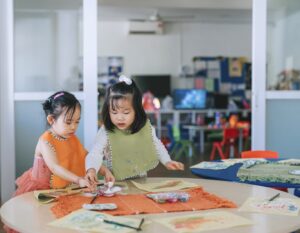


 View All
View All


 View All
View All











